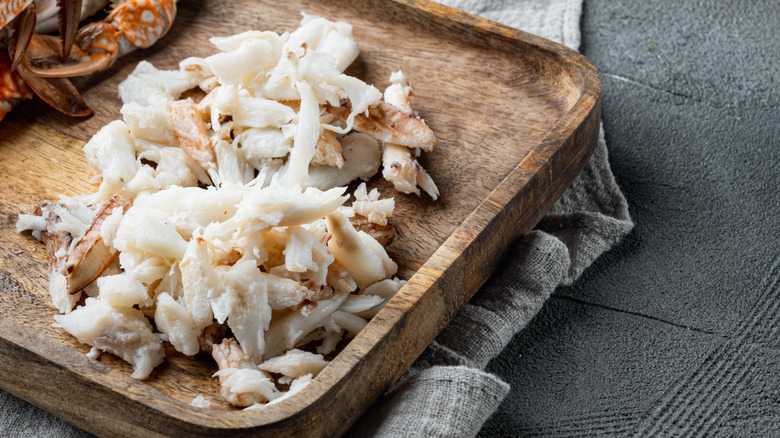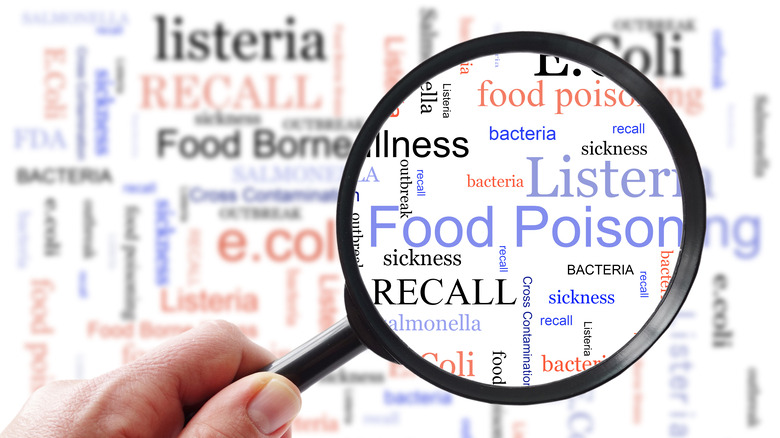The Reason Behind The Latest Crabmeat Recall Might Not Surprise You
On June 2, 2022, an Alabama-based seafood distributor operating in Alabama, Georgia, Louisiana, and Mississippi recalled one-pound packages of Crabmeat: Jumbo, Lump, Finger, and Claw meat that it sold to distributors in the aforementioned states, according to a notice posted on the U.S. Food and Drug Administration's website. The product comes in a one-pound container marked with the distributor's name, Irvington Seafood, and license number (AL 111-C), as well as a batch number. If you think you may have purchased this product, you're being urged to return it to the retailer from whom you purchased it in exchange for a full refund.
If you have questions, the company designates an email in the recall notice. But if you're wondering what the urgency is about, we can answer that straight away. It's because the product in question may have been cross-contaminated with Listeria monocytogenes.
As you likely know by now, thanks to the many Listeria recalls we've written about of late, including one of pre-cut fruit having Listeria concerns and one affecting 20,000 packages of pre-packaged shrimp, this particular pathogen may be life-threatening in immunocompromised adults (including those who are pregnant or of advanced age) and babies and young children — even the those still in utero, who may be contaminated if the person carrying them has been exposed, per the Mayo Clinic.
So, if you're shaking your head right about now and thinking, "seriously, Listeria, again?" you're definitely not alone. What's more, the reason behind the recall really won't surprise you.
Why Listeria concerns have been prompting so many recalls of late
Listeria was first identified in the 1920s, per a 2001 paper published in Clinical Microbiology Reviews. However, it was diagnosed only rarely until the late 1970s, when North America and Europe experienced outbreaks linked to ready-to-eat foods that required refrigeration but could be enjoyed without reheating. The reason is twofold. First, Listeria doesn't need a warm environment to multiply. Secondly, it's uniquely suited to surviving on surfaces, according to the food safety law firm Marler Clark. Accordingly, Listeria is quite proficient at cross-contaminating surfaces and can fester even when the host food has been consistently maintained at an otherwise safely cold temperature.
As humans have become more reliant on convenient, refrigerated foods, Listeria has had a larger universe in which to exist and wreak havoc. That has made the occurrence of listeriosis, the illness caused by the bacteria, more common since the last part of the 20th century. In addition, listeria's deadly potential has led public health authorities to prioritize preventing it, and where prevention fails, identifying it before it can sicken people, according to Michael Doyle, a food microbiology professor at the University of Georgia's Center for Food Safety (via Food & Wine).
Although this better-safe-than-sorry approach to listeriosis prevention has helped flatten the curve so to speak, it has also resulted in more Listeria-related recalls Nevertheless, a great many involve no illness at all (which is, thus far, the case with this current crabmeat recall).

